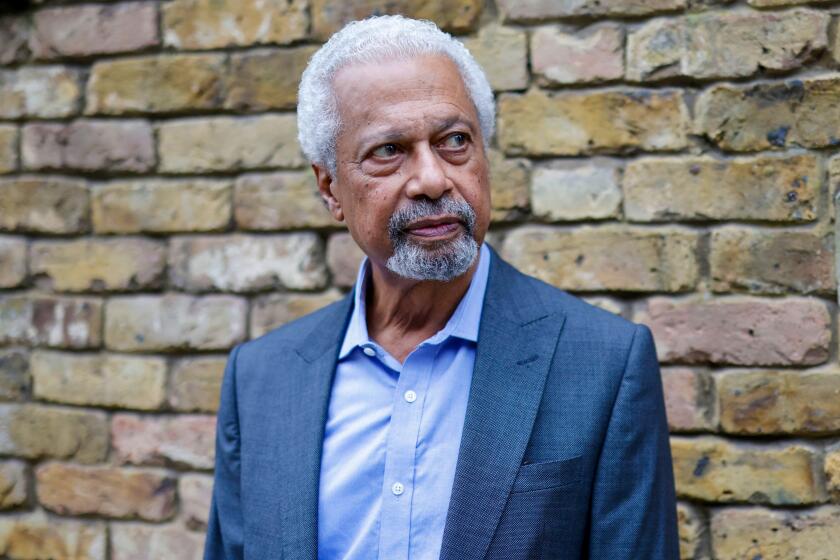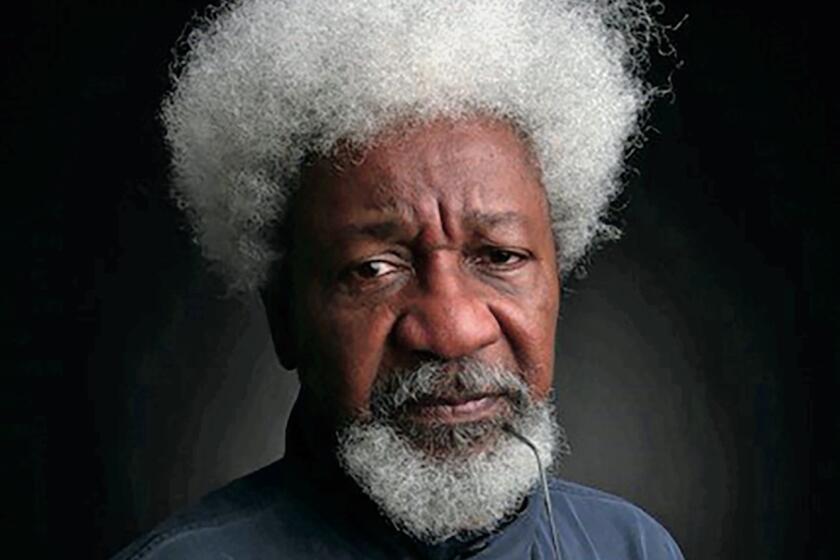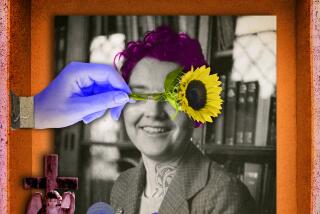The bestselling, crowdfunded novelist changing the face of Caribbean literature
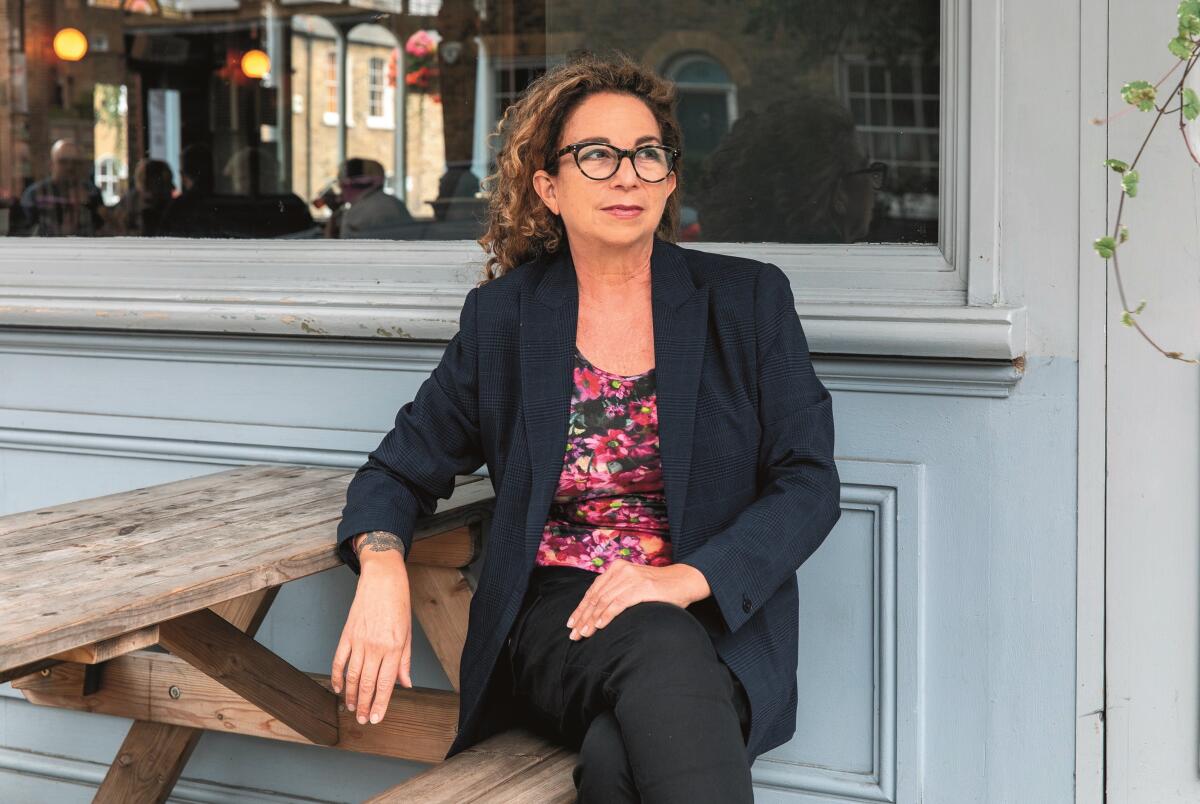
On the Shelf
'The Mermaid of Black Conch'
By Monique Roffey
Knopf: 240 pages, $26
If you buy books linked on our site, The Times may earn a commission from Bookshop.org, whose fees support independent bookstores.
Monique Roffey is one of the Caribbeanâs most versatile authors, whose novels, including âArchipelagoâ and âThe White Woman on the Green Bicycle,â range dramatically in style and subject. But the Trinidad-born author, 57, surprised even herself with her latest, âThe Mermaid of Black Conch.â It came to her in a rush, she says, inspired by the legend of Aycayia, or âSweet Voiceâ â an Indigenous Caribbean woman cast off her island centuries ago and condemned to exile as a mermaid.
In Roffeyâs version, Aycayia is captured by American tourists in 1976 before being rescued by a Black Conch fisherman named David Baptiste. With Davidâs help, she gradually learns to walk and talk, to become human again â shedding her scales and tail â and even to fall in love. But there will still be âhaters,â and her curse follows her on land too.
âThe Mermaid of Black Conchâ was a grass-roots publishing phenomenon: Published by a tiny, independent press on a shoestring budget just as the pandemic hit, it went on to win the U.K.âs 2020 Costa Book of the Year prize. Yet itâs no fluke; it joins an impressive wave of recent books by Trinidadian women writers, including Ingrid Persaudâs âLove After Loveâ and Ayanna Lloyd Banwoâs âWhen We Were Birds,â which are helping redefine a literature once dominated by noisy men.
Roffeyâs novel explores the complexities of Caribbean identity â Black, white, âred-brownâ and shades in between â from various perspectives, including Davidâs journal decades later and Aycayiaâs own haunting voice. âThey could just hear Aycayia singing,â Roffey writes, âa sound like Africa, like the Andes, like old Creole hymnals, like shamanic icaros from a time when people healed themselves with simple herbal wisdom, when they understood all the kingdoms of the earth.â Over email, Roffey discussed the bookâs magical journey, subverting mermaid tropes and the evolution of Caribbean writing.
Much of the world may consider him obscure, but to generations of writers with African roots, Abdulrazak Gurnah is both an influence and a role model.
How is âThe Mermaid of Black Conchâ different from your other books?
My books usually take lots of time and research before I write a word. With âThe Mermaid of Black Conch,â while I did do some experimenting with voice and point of view, the story just fell out quite quickly. Iâd been visiting a couple of secluded coastal spots for several years. Both these places â Grande Riviere, in the north of Trinidad, and Charlotteville, Tobago â were very alive for me. There was a mermaid dream, also, during a fishing competition in Charlotteville in 2013. Years after this dream, I began to write what is now âBlack Conch.â So this book really emerged from places of my unconscious. It was an easy birth.
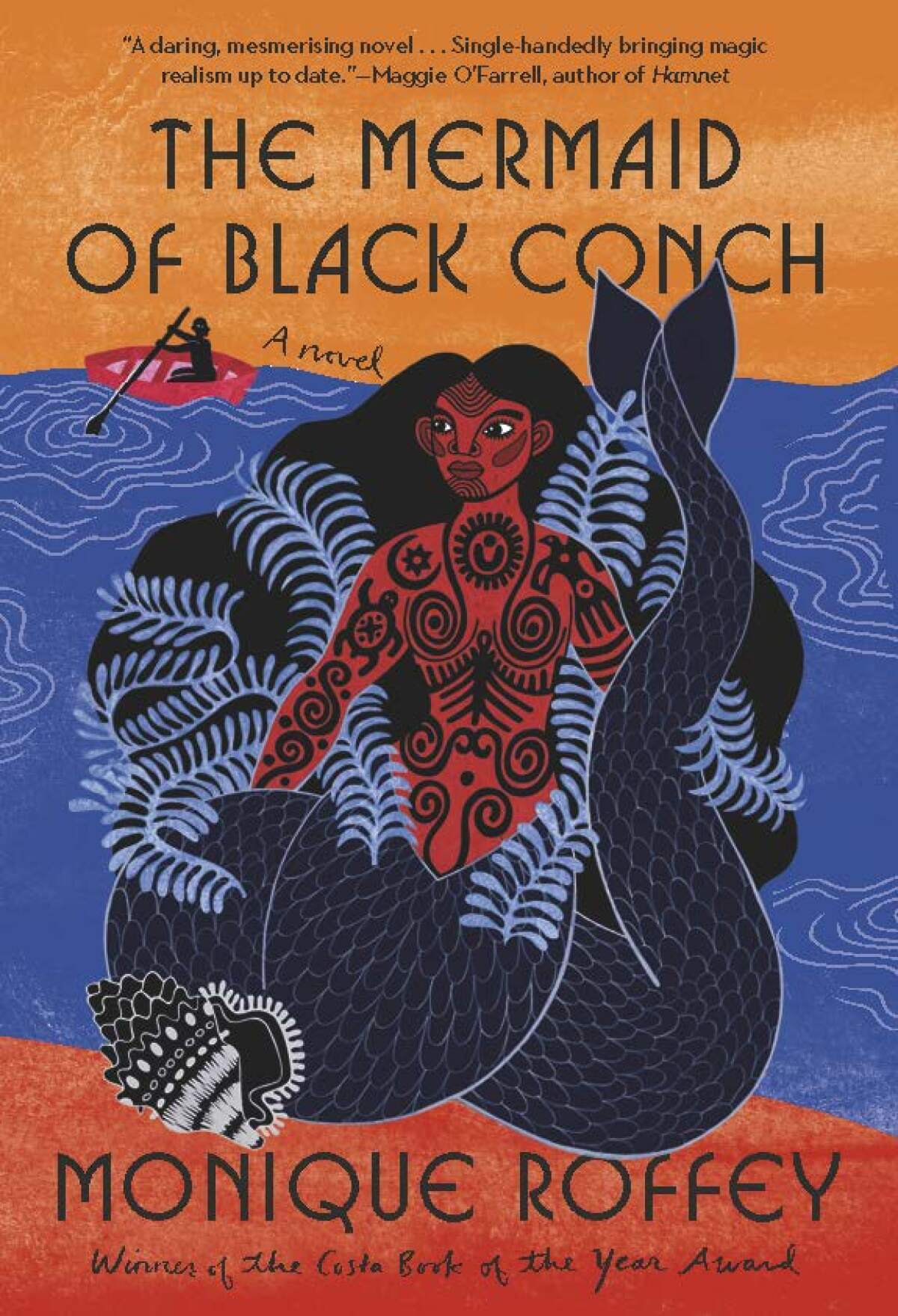
Yet its path to success wasnât so easy. It was published by the legendary Peepal Tree Press as the pandemic hit.
First, I launched a Crowdfunder in September 2019 to pay for a publicity team to help the book get noticed. The Bookseller carried a story, as itâs very rare for a writer to do something like that. However, the first wave of COVID-19 hit the month the book was published. So it sank, initially, without a trace. Later, Caribbean bookstagrammers began to rave. Then it appeared on the Goldsmiths Prize shortlist. The rest is history. Judges who understood the nuances of a postcolonial space liked it. I think this is a lucky book. Itâs had its own will and intentions. Having been rejected by every mainstream publisher in the U.K., it was on its own path.
What was it about the myth of Aycayia that captured your imagination, and how did you want to reimagine her?
I was interested in many things about the old TaĂno mermaid legend: that Aycayia is cursed by a big, bad powerful goddess, Jagua, on behalf of other women. That female sexual jealousy is in play here. Also what her banishment means â social exclusion â and that her sexuality gets banished too (sealed up inside her tail). That she is not just cast out of her community, but she is also banished from romantic love. There was so much in this story that needed a 21st century feminist rewrite. Old stories frequently contain outdated tropes about womanhood. And all, or most, mermaid stories are a product of the male gaze.
The Nigerian writer, the first sub-Saharan winner of the Nobel Prize, discusses âChronicles from the Land of the Happiest People on Earth.â
How does the love affair between Aycayia and David end up transforming them both?
For David, itâs an initiation into tenderness. He writes retrospectively, knowing that his time with the mermaid grew him in some way towards being a better man. For Aycayia, she is bestowed her rite of passage into erotic love. She beats the curse and meets âthe lover,â David. I leave it to the readersâ imagination how their affair continues. For David, it is a lifelong attachment. For Aycayia, we know she will certainly outlive him. She doesnât return to the sea the same lonely virgin. For both of them, eros is transformative.
One of the bookâs most intriguing characters is Arcadia Rain, âa white woman with a Creole song in her mouth.â Did you also want to update the idea of white Caribbean women portrayed by Jean Rhys and others?
Rhysâ âmad white womanâ needed an update for sure. I object to any woman being called âmadâ â a clichĂŠd kind of Freudian hysteric. Women, and people generally, are driven mad due to trauma. Miss Rain is an amalgam of people I know in Trinidad who own land and are part of things â creolized and fused into wider society â yet [are] also âapartâ in some way and have to live with their curse of history. Some landowners, like Miss Rain, understand that the land they âownâ is unownable.
In a recent article, you celebrate the âgender quakeâ taking place among Trinidadian writers. How has the Caribbean literary landscape changed?
When I started writing, 20-plus years ago, the writing world in the U.K. and the Caribbean region was almost entirely male. In the Caribbean, the canon was dominated by two male [Nobel] laureates, Derek Walcott and V.S. Naipaul. The spats between them were public and legendary. This behavior now seems toxic â and it was. The writers in this male-dominated environment werenât friendly to each other, let alone to me. Or so it seemed then as an emerging writer.
Two things changed everything for me: One of my novels was shortlisted for the Orange Prize for women in 2010, and the Bocas Lit Fest was launched in 2011. Both broke new ground for female writers in the region and the diaspora. Todayâs new crop of Caribbean female writers are emerging into a much warmer climate.
A guide to the literary geography of Los Angeles: A comprehensive bookstore map, writersâ meetups, place histories, an author survey, essays and more.
Tepper has written for the New York Times Book Review, Vanity Fair and Air Mail, among other places.
More to Read
Sign up for our Book Club newsletter
Get the latest news, events and more from the Los Angeles Times Book Club, and help us get L.A. reading and talking.
You may occasionally receive promotional content from the Los Angeles Times.
